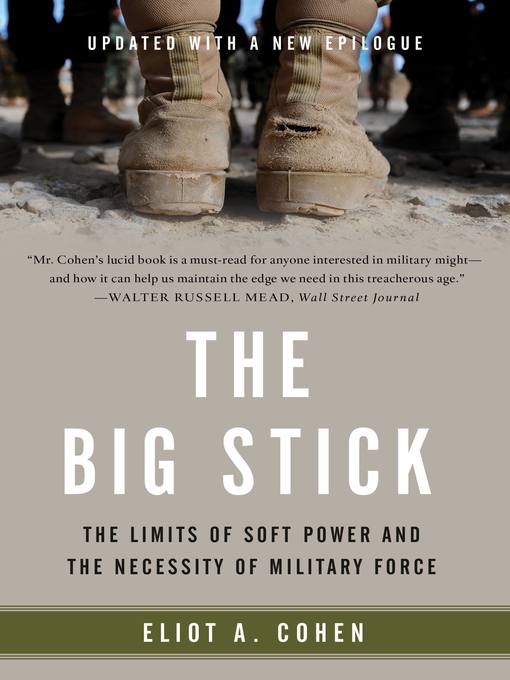
The Big Stick
The Limits of Soft Power and the Necessity of Military Force
کتاب های مرتبط
- اطلاعات
- نقد و بررسی
- دیدگاه کاربران
نقد و بررسی

October 24, 2016
Cohen (Conquered into Liberty), a Johns Hopkins professor of strategic studies and a leading neo-conservative theorist, makes the case for hard power in American foreign policy, warning that shrinking U.S. interest in guaranteeing global order has already led to increased international instability, nuclear threats, and terrorism. Cohen begins with a calculus and defense of the U.S.’s post-9/11 wars and their “partial successes.” The U.S. remains the world’s dominant military power, he asserts, but its antagonists, unlike during the Cold War, are dispersed around the world. Cohen points to China’s growth, ambition, and militarization, musing on the possible triggers and consequences of a U.S.-China clash that could go nuclear. He also points to Russia, Iran, North Korea, and even putative ally Pakistan as potential threats. Cohen sees no future accommodation beyond a tactical truce between radical Islamists and the West, but,
surprisingly, he sidesteps the role Israel plays as both a source of conflict and an American ally in the Middle East. Eager for the U.S. to remain assertive worldwide, Cohen makes clearheaded assessments that many strategists who don’t share his views and policy advice will nonetheless find strongly thought out. Agent: Andrew Wylie, Wylie Agency.

December 1, 2016
Talk is cheap, but a fleet of aircraft carriers and plenty of nukes--that's something.Soft power, writes Cohen (Strategic Studies/Johns Hopkins Univ.; Conquered into Liberty: Two Centuries of Battles along the Great Warpath that Made the American Way of War, 2011, etc.), has its uses; whether exercised through cajoling or economic blockade, it can persuade unfriendly nations to behave in ways that we wish. "Most assuredly," he writes, "nonviolent forms of power have their place in any country's statecraft." But soft power is also limited enough that a determined regime can resist it. Cohen insists that the world is an unfriendly and dangerous place, which goes against the arguments of Steven Pinker in The Better Angels of Our Nature (2011), for whom he seems to harbor a special animus. Cohen examines a few recent cases of the use of military might--e.g., Iraq, which, he urges, was a war that was probably bound to happen. If Iraq was a war of choice, he adds, the one against al-Qaida in the wake of 9/11 "most assuredly was not." Cohen also notes that there may be a fight in the making with China, which, though its military leadership is not particularly astute, represents an opponent "with a unique and powerful, but far from invincible, strategic style." To counter it and other foes will demand constant analysis on the part of an American military apparatus wedded to a "grand strategy" based on several faulty presumptions, including a Russia too economically weak to act and a North Korea that, far from being on its knees, is prepared to lob nuclear warheads into Los Angeles. Cohen's view, clinically presented, is dark, but it provides some justification for the view that the U.S. truly must act as the world's law enforcement officer given the reluctance or inability of other powers to do so. An argument, likely to fall on sympathetic ears in Washington, that when it comes to power and armaments, more is better.
COPYRIGHT(2016) Kirkus Reviews, ALL RIGHTS RESERVED.

























دیدگاه کاربران